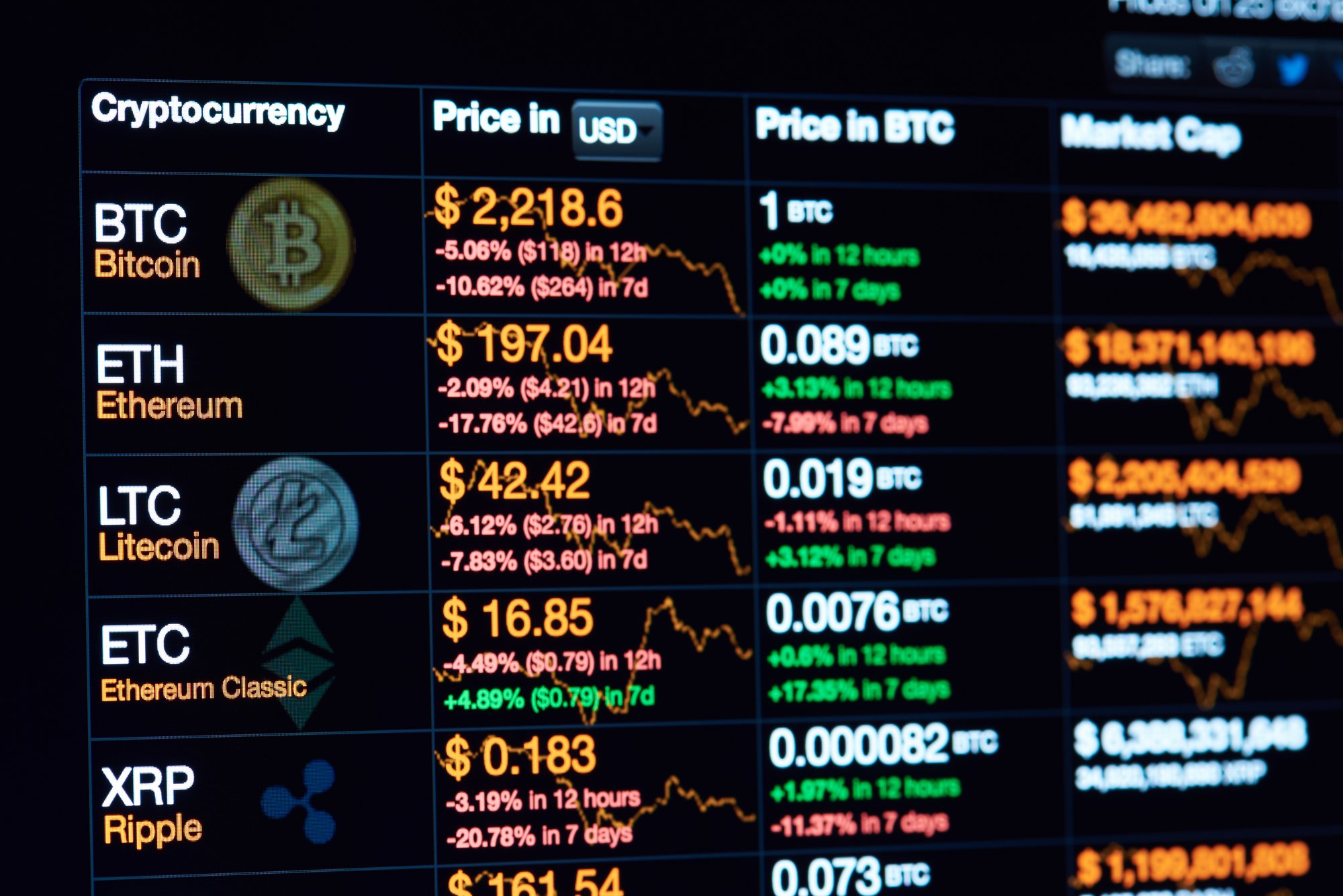The cryptocurrency market, once shrouded in uncertainty, has evolved into a more consolidated and organized space. Choosing the right cryptocurrency exchange is a critical step in your trading journey, and with the plethora of options available, it’s essential to navigate wisely. At CrispyBull, we’ve compiled an updated guide based on real-world experiences and the latest developments in the crypto sphere. Let’s dive into the 15 important features to consider when selecting a cryptocurrency exchange.
1. Reputation Check: Beyond the Surface
Before exploring a crypto exchange’s website, conduct thorough research. Gauge its popularity, user base, and online reputation. Utilize digital tools for heuristic marketing analysis, but be wary of paid reviews and sponsored content. Rely on qualitative data, genuine opinions, and feedback from real users. A comprehensive search engine check, social media exploration, and discussions with friends can provide valuable insights. If negative reports abound, proceed with caution.
2. Usability: The Interface Matters
After shortlisting reputable exchanges, scrutinize their online interfaces. User-friendliness is paramount, as navigating a clumsy software can hinder your trading experience. A smooth interface contributes to seamless transactions, reducing unnecessary complexities. A user-friendly exchange ensures you can focus on trading strategies rather than grappling with a convoluted system.
3. Security: Safeguarding Your Assets
Security remains a cornerstone in the crypto realm. Prioritize platforms that prioritize safety. Scrutinize the exchange’s security measures, including the development team’s expertise, employed programs, and backup protocols. Delve into how and where they store user data and funds. Thoroughly read uploaded information to ensure your assets are in safe hands.
4. Verification: The Necessary Hurdle
While creating an account may seem tedious, don’t underestimate the verification process. It’s a mutual safeguard for both traders and exchanges. Respectable platforms seek to know their clients, emphasizing transparency. Traders benefit by avoiding shady dealings and ensuring their funds are handled responsibly. Be prepared to complete the verification process, as it signifies a commitment to responsible trading.
5. Payment Methods: Convenience is Key
Consider your personal convenience when evaluating payment methods. Examine options such as VISA, Mastercard, bank wire, PayPal, SWIFT, and more. Understand the trade-offs; wire transfers might take longer, while card payments may involve additional identity verification and potentially higher fees. Choose an exchange that aligns with your preferred payment method for a smoother trading experience.
6. Fees and Commissions: The Unseen Costs
Fees and commissions are often overlooked but can significantly impact your trading outcomes. Examine deposit and withdrawal fees, broker commissions, and service charges. Some platforms offer fee-less deposits to attract users but compensate with high withdrawal fees. Comprehensive research is crucial, as fees typically range from 0.5% to 5-6%. Awareness prevents unpleasant surprises down the line.
7. Leverage: Balancing Risk and Reward
Leverage amplifies your trading funds, allowing for larger positions. While some exchanges offer high leverage, understand the associated risks. A common leverage rate is 1:2 or 1:5, depending on the deposit. While it provides opportunities for increased profits, losses are magnified as well. Exercise caution, considering your risk tolerance and trading strategy.
8. Coin Pairs: Matching Preferences
Crypto exchanges may not offer the currency pairs you desire. Check their listings to ensure compatibility with your preferred trading pairs, whether involving fiat currencies or cryptocurrencies. For those with external wallets, depositing digital assets may not be an issue. However, if you intend to buy coins with traditional currency, ensure the exchange supports your desired pairs.
9. Cryptocurrency Variety: Beyond the Basics
While major cryptocurrencies like Bitcoin and Ethereum are common, consider the exchange’s offering of Altcoins and support for Initial Coin Offerings (ICOs). If you intend to trade lesser-known cryptocurrencies, scrutinize the exchange’s Altcoin listings. Some exchanges may not support ICOs, particularly newly launched ones. Assess the platform’s cryptocurrency variety to align with your trading preferences.
10. Customer Support: A Lifeline in Times of Trouble
Customer support is often overlooked until issues arise. Prioritize exchanges with responsive customer support channels, including email, live chat, and phone support. Transparent exchanges provide avenues to connect with real people, fostering trust and ensuring tailored solutions. Learn from unfortunate incidents, such as a South African lady’s loss due to a fraudulent exchange with no contact details. Accessibility to support can be a game-changer.
11. Liquidity: The Lifeblood of Trading
While delving into technicalities, understand liquidity’s importance. A high liquidity rate facilitates faster transactions, quick bank transfers, and easy withdrawals. Opt for exchanges with proper liquidity to avoid prolonged waits for fund transfers. Assessing liquidity ensures a smoother trading experience, minimizing potential delays in accessing your funds.
12. Legitimacy: Boring but Essential
Delve into the legal aspects by inspecting a crypto exchange’s juridical documents. Legitimate exchanges provide clear information about their registration and legal standing. Ensure they possess the necessary legal numbers for conducting financial transactions. Legitimacy is non-negotiable when entrusting your assets to a cryptocurrency exchange.
13. Country Restrictions: Know Your Eligibility
Understand the interplay between country laws and the exchange’s target group. Some platforms may be limited to specific regions due to regulatory compliance. Ensure eligibility to register and create an account, considering potential restrictions based on your location. Additionally, be aware of exchanges that may only deal with a specific fiat currency, potentially leading to cumbersome currency conversions.
14. Exchange Rate: Beyond Cryptocurrency
Exchange rates don’t only apply to cryptocurrencies. Similar to traditional currency markets, rates can vary between institutions. While a stable Euro may be expected in European countries, cryptocurrencies exhibit more volatility. Examine average values most exchanges follow, but be aware that differences can reach up to 10%. Awareness of exchange rates contributes to more informed trading decisions.
15. Mobile Apps: Trading on the Go
While seemingly indulgent, the availability of mobile apps can be a valuable asset. Depending on your trading strategy, having access to your positions, checking prices, and managing bids from anywhere becomes essential. Mobile apps cater to the dynamic nature of crypto markets, allowing swift reactions to market movements even while on the move.
In conclusion, the crypto trading landscape has matured, providing a more stable and organized environment. Armed with these updated tips, you can confidently navigate the complexities of choosing the right cryptocurrency exchange. Remember, your journey into the crypto seas is unique, and making informed decisions ensures a smoother and more successful trading experience. Happy trading!











[…] yet again. This time, the spotlight shines on Uniswap, a trailblazer in the decentralized exchange arena, as it navigates through turbulent waters. The U.S. Securities and Exchange Commission (SEC) […]